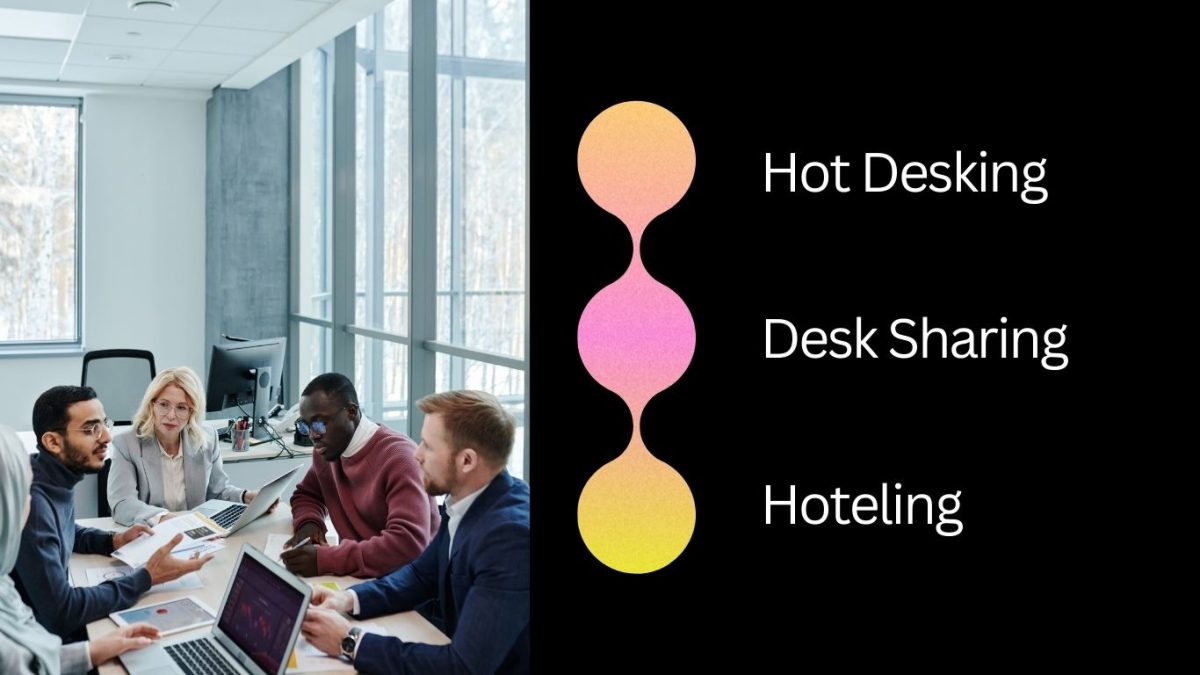Hot desking, desk sharing, and hoteling are all workplace strategies that involve the shared use of office space. However, there are slight differences between these concepts.
Let’s explore each one in more detail:
Table of Contents
Hot Desking

Hot desking refers to a flexible seating arrangement where employees do not have assigned desks or workstations. Instead, they choose an available workspace on a first-come, first-served basis each day.
This approach promotes a dynamic and collaborative work environment, as employees have the opportunity to interact with different colleagues regularly.
Hot desking is typically suitable for organizations with a mobile or remote workforce, or those that prioritize flexibility and collaboration in their work culture.
Desk Sharing

Desk sharing is similar to hot desking, but with a slight difference. In desk sharing, employees still do not have permanent assigned desks.
However, instead of choosing a different workspace each day, they share desks with others who work on different shifts or at different times. For example, if one employee works in the morning, another employee may use the same desk in the afternoon.
Desk sharing allows organizations to optimize space utilization and reduce the number of desks required, which can be advantageous for companies with limited office space.
Hoteling

Hoteling, also known as hoteling stations or office hoteling, is a reservation-based system where employees reserve a workspace or office in advance for a specific period.
With hoteling, employees have the flexibility to choose a suitable workspace depending on their needs, whether it’s a desk, cubicle, or private office. This system is often facilitated through a technology platform or software that manages the reservations and provides real-time availability information.
Hoteling is particularly useful for organizations that have a mobile workforce or employees who spend a significant amount of time working off-site. It allows employees to have a designated space when they need it, promoting productivity and a sense of belonging.
Desk booking system
In summary, while hot desking, desk sharing, and hoteling share the common goal of optimizing office space and promoting flexibility, they differ in terms of the level of workspace flexibility and the reservation system used.
Employees can easily book desks or offices through a mobile app or web portal, ensuring they have a designated workspace when they need it. The system can also provide insights on space utilization, helping organizations optimize their office layout and identify opportunities for cost savings.
Additionally, smart office systems can offer features like personalized preferences, such as adjustable lighting and temperature settings, to enhance employee comfort and productivity.
By leveraging technology, a smart office system streamlines the desk booking process, improves efficiency, and enhances the overall experience of employees participating in these flexible workspace strategies.


